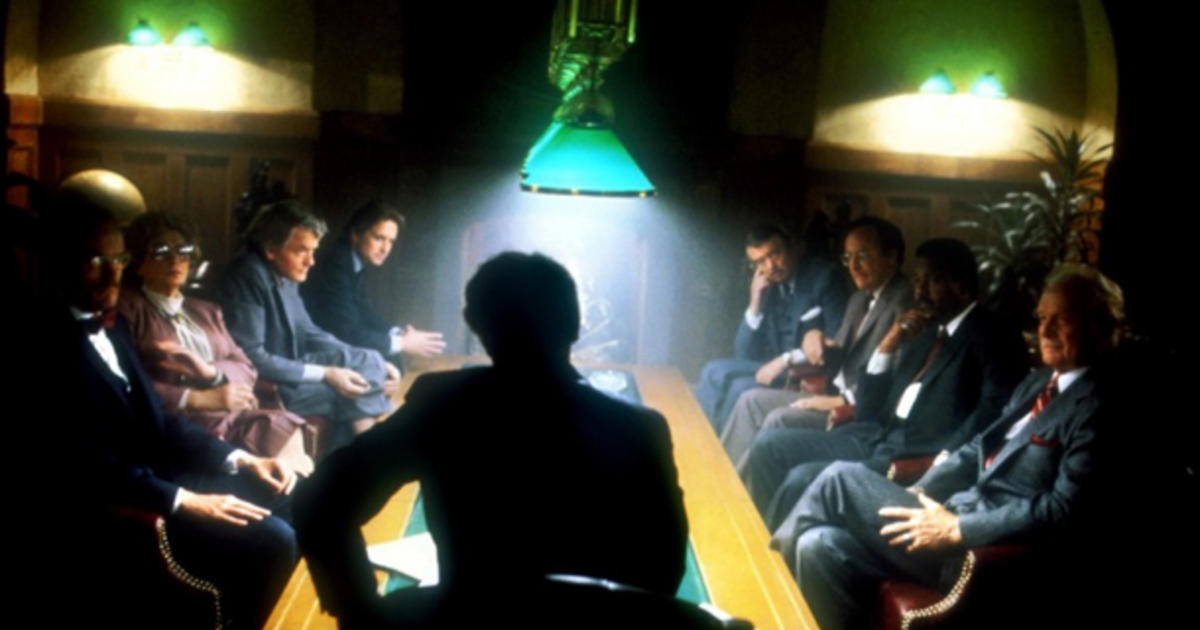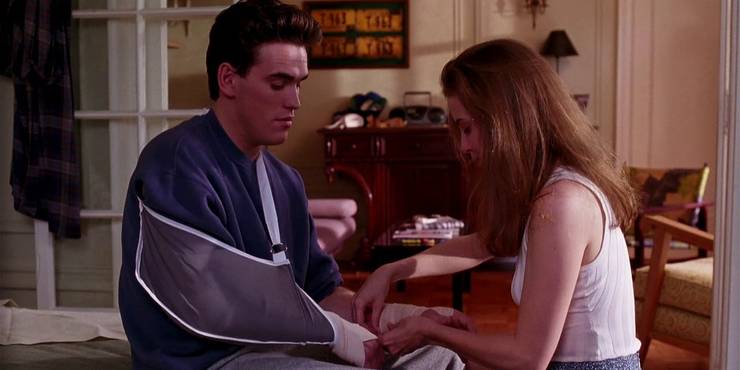I know it has been two months since I have gotten a post up on this site. I am just going to pretend it has only been a couple of days. I am catching up on my movie reviews.
The Star Chamber (1983)
This is not the sort of thing I am generally interested in (it's about lawyers, who also operate a secret vigilante society on the side), but it is pretty well-made and well-scripted, and retains something of the distinctive qualities of the 1970s, pre home-video style of filmmaking. The settings and the acting feel a little less superficial and corporate product-like than what was soon to come, the pace is less frenetic, the story, which could be confusing, is laid out clearly and with deliberation. That said, coming from a background of literature and traditional plays, these kinds of Hollywood stories about competitive, cynical lawyers, with a lot of gun and explosion generated violence and death, I have a hard time getting into, and always have.
Mr Wonderful (1993)
This kept turning up in my game that I use to pick movies, so I thought I would try it. It's a romantic comedy from the early 90s, which was kind of my time, though it's more about late baby boomer people than people my age. I thought that maybe there would be something about it I'd like, but it was pretty bad all around. The script is weak, and it is exacerbated by unfortunate casting. The married middle-aged English professor having an affair with a grad student is a motif I can sometimes be persuaded to like, but unhappily the professor here is played by William Hurt in the full realization of his inimitable smarminess. (Ugh) Matt Dillon and Annabella Sciorra are the leads around whom the plot centers, and there is no chemistry between them at all. Annabella Sciorra didn't have any chemistry with William Hurt when she was his mistress either, so she really did not have a good movie. I remember sort of thinking Matt Dillon was all right in something at some point in the 90s, but I can't remember what it was now, and it seems hard to imagine after seeing this. The part of the plot where Matt Dillon and his electrician buddies are looking to get out of their (presumably) pretty well-compensated union jobs to pursue the dream of restoring and re-opening a dilapidated bowling alley in what looks like Lower Manhattan was painful to watch from the vantage of having lived through the past twenty years.
The actress Mary Louise Parker was appealing in this, though mainly because she reminds me of a type of early 90s girlfriend/love interest that never quite materialized. Maybe I'm not ready to revisit any Hollywood movies from this era yet even for nostalgia purposes, regardless of their quality. There is still too much that causes me pain to remember. I like the European films from this time though, those make me happy. I suppose because I can identify them with my more pleasant dreams at the time, and not with the painful truth of my actual social existence.
Goodbye, Columbus (1969)
I read this book some years back (and liked it), and I thought this was a good adaptation, as did most critics and even moviegoers at the time, as it was a decent hit at the box office. It accurately identified, I think, what were the best and most interesting parts of the book, and made those particular dynamics the points of emphasis in the movie, which I find to be the case with most of the better film adaptations of literature. This is obviously the kind of movie I am inclined to like, romance between collegiate English major type people, 1960s America--and, pretty rare for the 60s, a Mid-Atlantic setting outside of Manhattan Island--characters, attitudes, rooms, dinners, activities, and so on that are recognizable to me from my childhood but that have increasingly gone out of the world. Many contemporary commentators note that this reminds them of The Graduate, and they are kind of similar in structure and general mood, I guess; I would think of them as belonging to the same family, but the things that work in this are not the same things that work in The Graduate, or at least that it is famous for. The soundtrack by the rock band The Association, for an obvious example, was a complete flop compared to the classic Simon and Garfunkel songs in the other film, and the pool scenes and cocktail parties, despite taking place at a country club, come off as shabbier and less assured. Goodbye, Columbus struck me as perhaps more humane. I had not really understood the ending when I read the book, in the sense of what was the real point, and when the same dilemma come up again in the movie some idea did occur to me which I wish I had written down because I can't remember what it was now. It had to do of course with Brenda being guided inwardly by what her parents would have wanted, but also with why she had even gone out with the guy in the first place, which seems like the real question...but I can't remember what it was now.
I was going to write up six or seven movies here but time has defeated me this week, so I think I will just post these three. Goodbye, Columbus is an interesting movie from its time if you have somehow missed it. The book was published in 1959 but the film is clearly set in the late 60s and it works just as well. The star of the movie, Richard Benjamin, whom I don't remember seeing before though I guess he was something of a name for a while in this era, starred a few years later in an adaptation of Portnoy's Complaint which seems to have been a bomb.
I'm not sure why this picture is at the bottom. The new Blogger format is throwing me off here.





No comments:
Post a Comment